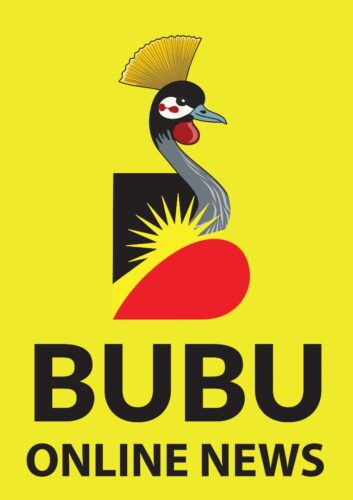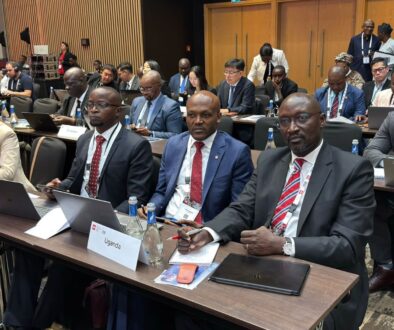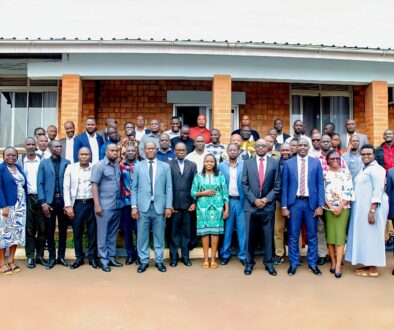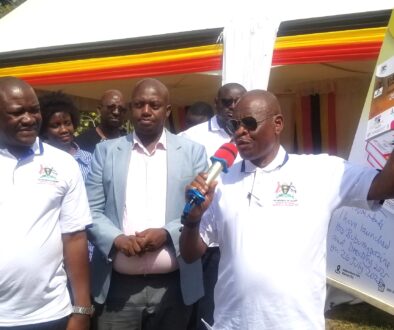Uganda, Kenya: Remove Trade Barriers
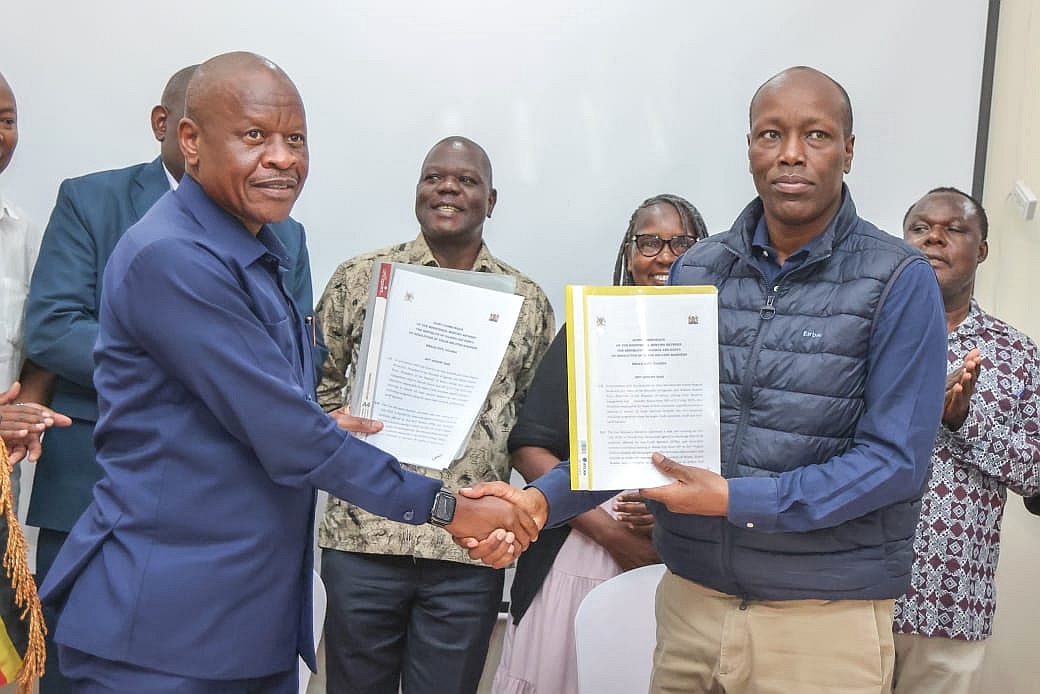
The state minister for Trade, General Wilson Mbasu Mbadi, and his Kenyan counterpart, Lee Kinyanjui after signing the agreement to remove trade barriers
Uganda and Kenya have agreed to eliminate all existing tariff and non-tariff barriers that hinder trade between the two countries and align all trade-related commitments with the East African Community (EAC) treaty and protocols.
In a joint communique issued in Mbale, Uganda, on Saturday, the state minister for Trade, General Wilson Mbasu Mbadi, and his Kenyan counterpart, Lee Kinyanjui, also pledged to alleviate the congestion of trucks at key cross-border points of Malaba, Busia, Suam, and Lwakhakha, to ensure the smooth flow of goods, services, and people.
They resolved to remove discriminatory excise duties, levies, and other charges of equivalent effect. Eliminating trade barriers will promote fair competition by enhancing goods quality and production efficiency, attracting consumers from the regional market.
Border agencies were instructed to clear truck congestion at the Malaba border within 24 hours, maintaining a maximum queue of four kilometres, and at the Busia border, a maximum of 500 metres.
The ministers are committed to addressing delays caused by multiple checkpoints and ensuring 24/7 operations. The Ugandan government pledged to address issues related to Malaba weighbridge operations and along the major trade corridors to facilitate faster movement of goods.
The two nations are dedicated to prioritising and mobilising resources for critical border infrastructure, including upgrading roads and constructing bridges. They also agreed to complete the construction of the Kenyan side of Suam One Stop Border Post, upgrade road infrastructure, and acquire a scanner for the Kenya side of the Lwakhakha border point.
Joint Border Committees were directed to be operationalised to resolve daily challenges and attend to unresolved matters promptly. The two countries emphasised the importance of ongoing dialogue with private sector stakeholders to ensure that the trade facilitation measures reflect business realities.
They furthermore agreed to establish a standing joint technical committee to monitor and resolve all trade barriers between them. The Ugandan delegation included representatives from the Ministry of Finance, Planning and Economic Development; Ministry of Trade, Industry and Cooperatives; Ministry of Foreign Affairs; Ministry of Agriculture, Animal Industry and Fisheries; Ministry of Works and Transport; Uganda Revenue Authority; Uganda Free Zones and Export Promotion Authority; and Uganda National Bureau of Standards.
The Kenyan delegation comprised PSs Juma Mukhwana (Industry) and Regina Ombam (Trade), alongside representatives from the Ministries of Investments and Industry and Foreign Affairs and Diaspora Affairs, the Kenya High Commission in Kampala, Kenya Bureau of Standards, Agriculture and Food Authority, and Kenya Revenue Authority.
This bilateral agreement follows a directive by Presidents William Ruto and Yoweri Museveni, during their bilateral engagement in Nairobi in July 2025, to the ministers responsible for trade to resolve the trade barriers urgently.
The two ministers held a sideline meeting on July 31 in Nairobi, agreeing to exchange lists of products affected by non-tariff barriers (NTBs) and convene a technical meeting in Mbale, Uganda, from August 18 to 22 to review the lists.
